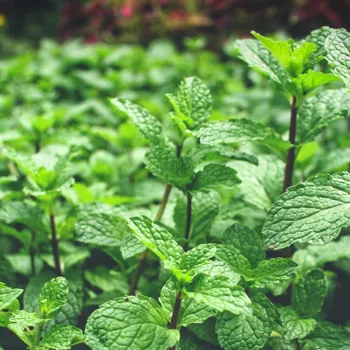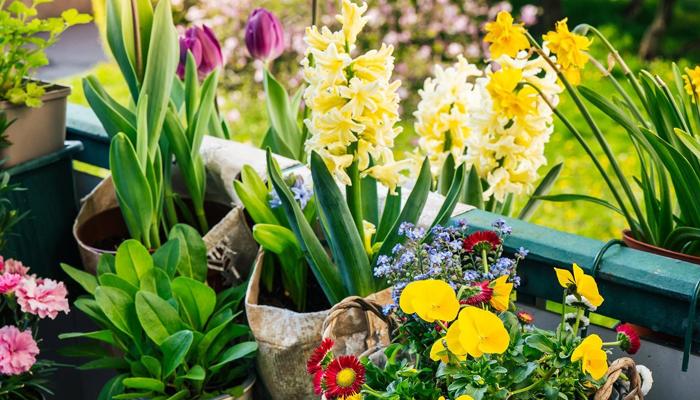Unlock the secrets of organic gardening with these 6 steps! Transform your backyard into a thriving oasis. Read on for more!
Namaste, green-thumb enthusiasts! Are you tired of store-bought vegetables that
lack that real, earthy flavour? Do you dream of a garden brimming with healthy, delicious produce, grown without harmful chemicals? Well, your dream is closer than you think!
With these 6 easy steps, you can unlock the secrets to successful organic gardening and transform your backyard into a thriving oasis. So, put on your gardening gloves, grab your tools, and let's get started on this rewarding journey!
Organic gardening is not just a way to grow food; it’s a lifestyle choice that promotes environmental sustainability and provides you with the freshest, healthiest ingredients for your family's table.
Prepare to be amazed at the bounty you can create with just a little effort and a lot of love for nature.
Understanding soil for successful organic gardening
The first crucial step in organic gardening is understanding your soil. Think of your soil as the foundation of your entire garden. Healthy soil means healthy plants. Before planting anything, take some time to assess your soil's texture, drainage, and nutrient content.

Is your soil sandy, clayey, or loamy? Sandy soil drains quickly but doesn't retain nutrients well. Clayey soil retains water but can become compacted. Loamy soil, a mix of sand, silt, and clay, offers the best of both worlds.
You can improve your soil by adding organic matter like compost, well-rotted manure, or leaf mould. These amendments will enrich the soil, improve drainage, and provide essential nutrients for your plants.
Get the basics of soil testing and understanding its needs, will pave path that will lead the way to a successful harvest. Remember, happy soil equals happy plants!
Choose plants suited to your climate for gardening success
Next up, and perhaps the easiest, is to always select the right plants for your climate. Not all plants thrive everywhere. Choosing plants that are well-suited to your local climate and growing conditions is essential for success.
Consider factors such as sunlight, temperature, rainfall, and soil type when selecting your plants. Native plants are often a great choice because they are adapted to the local environment and require less maintenance.
Research your local climate zone and choose veggies, fruits, and herbs that are known to flourish in your area. This will not only save you time and effort but also ensure a more abundant and flavorful harvest.
Selecting plants that have all the capabilities to grow in your climate will make the plant and harvesting procedure much easier.
Organic gardening offers natural solutions for pest control
Now, let's talk about natural pest control. One of the biggest challenges in gardening is dealing with unwanted pests. But fear not! Organic gardening offers a plethora of natural solutions. Companion planting, where you grow certain plants together that benefit each other, can help deter pests.
For example, marigolds repel nematodes and other harmful insects, while basil deters aphids and whiteflies. You can also use organic pest control sprays made from ingredients like neem oil, garlic, or chili pepper. Encourage beneficial insects like ladybugs and lacewings, which prey on pests.
Regularly inspecting your plants for signs of infestation is also crucial for early detection and treatment. A garden free from pests is a joy to behold, and with these natural techniques, you can keep those pesky visitors at bay without resorting to harmful chemicals.
Proper watering is crucial for plant health; avoid overwatering
Watering with the right type and amount is a life saver when it comes to plants. Proper watering is essential for plant health, but overwatering can be just as detrimental as underwatering. Water deeply but infrequently, allowing the soil to dry out slightly between waterings.
Water in the morning to allow the foliage to dry before nightfall, which helps prevent fungal diseases. Use a soaker hose or drip irrigation to deliver water directly to the roots, minimizing water waste and reducing the risk of foliar diseases.
Mulching around your plants with organic matter like straw or wood chips helps retain moisture in the soil, reducing the need for frequent watering. Pay attention to the specific watering needs of different plants and adjust your watering schedule accordingly.
Hydrated plants are happy plants, and a well-watered garden is a thriving garden.
Creating nutrient-rich compost enhances gardening sustainability
One of the most rewarding aspects of organic gardening is creating your own compost. Compost is essentially decomposed organic matter, and it's a fantastic soil amendment.
You can turn kitchen scraps, yard waste, and other organic materials into rich, nutrient-rich compost that will nourish your plants. There are many ways to compost, from simple backyard piles to more elaborate composting systems.
The key is to maintain a balance of "green" materials (like vegetable scraps and coffee grounds) and "brown" materials (like dry leaves and shredded paper). Turn your compost pile regularly to aerate it and speed up the decomposition process.
In a few months, you'll have a valuable soil amendment that will improve your soil's structure, fertility, and water-holding capacity. Composting is a sustainable way to recycle organic waste and create a valuable resource for your garden.
Embrace organic gardening, connect with nature, enjoy the process
Finally, remember to enjoy the process. Organic gardening is not just about growing food; it's about connecting with nature, learning new skills, and enjoying the fruits of your labor. Don't be afraid to experiment, make mistakes, and learn from them.
Join a local gardening club, attend workshops, or read books and articles to expand your knowledge. The more you learn, the more successful you'll become. And most importantly, remember to savor the delicious, homegrown produce that you've worked so hard to create.
There's nothing quite like the taste of a freshly picked tomato or a fragrant herb grown in your own garden. So, embrace the journey, connect with nature, and reap the rewards of organic gardening. Happy gardening!
AI Generated Content. Glance/InMobi shall have no liability for the content












